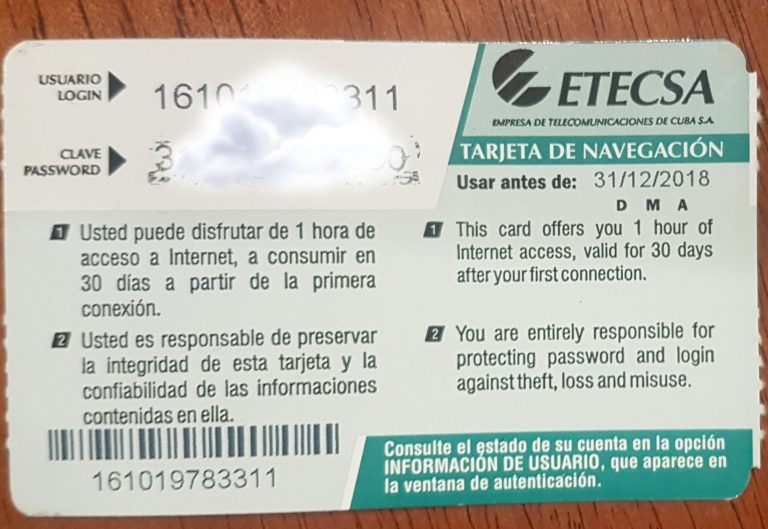Going to Cuba? Here are a few things to keep in mind when planning for your trip to Cuba.
Money: In Cuba, cash is king, so make sure you bring more than enough cash to last you through the trip. For those coming from the US, US ATM cards and credit cards do not work in Cuba, so you can even leave those at home. Cuba operates on a two-currency system: CUP and CUC. As a visitor to the country, you will mainly use CUCs, whereas the locals mainly use CUP. When you arrive to the country, the first thing you would want to do is money exchange. Here are some money exchange tips:
- USD is penalized at 10% in Cuba, plus exchange fee of around 3% -3.5% so for those coming from the US, you might want to consider first convert money into Euros first before getting into Cuba.
- Make sure you know the exchange rates and have a calculator in hand. Count everything before leaving the desk. Fraud is prevalent at these money exchanges.
Lodging: While there are hotels available in Cuba, most people stay in casa particular, which is essentially a homestay, similar to a bed and breakfast. My friend and I stayed in casa particulars during our trip, since we wanted a local experience for our trip (and it is super affordable!). There are places available via the Airbnb website/app, but we booked our accommodations via this website: https://www.bandbcuba.com. On this website you can pick and choose different casas based on the pictures and descriptions of each property. This website accepts a small deposit from your credit card to hold the reservation, and you will pay the balance of the cost in cash later when you check into your casa.
Food: Food is really affordable in Cuba. For nicer dining experience with air conditioning and great service, our meals averaged about 15 CUCs per person. However you can always find cheaper meals in more local places. You can also reserve a homemade meal at your casa particular for a unique local experience. Our lobster feast at our casa particular in Vinales was only 8 CUCs, and it was quite the spread!
Activities: We planned a lot of our activities on the fly, and most of the time we relied on our casa particular hosts for information and recommendations. We didn’t speak any Spanish, so it was really helpful for them to help us arrange for tours and transportation.
Extra Clothes: Cuba is super hot and humid. Every day we would come home drenched from the heat (and I am not one to sweat a lot). It would be a good idea to bring along extra change of clothes/shirts to change into. It was really nice to take those mid-day showers to rinse off before continuing on with our adventures.
Internet Access: There is very limited internet connectivity in Cuba. Internet service is controlled by a state-owned telecom company ETSECA. To access the internet you will first need to buy ETSECA internet cards either from the the company store itself or from third party re-sellers. Here’s what they look like:

ETECSA Internet Card

ETECSA Internet Card
The cost of 1 hour of access if you buy directly from ETECSA is 1.50 CUCs per hour. If you buy directly from ETECSA, make sure you have your passport with you. We have also purchased these cards from re-sellers for as high as 3 CUCs per hour. If you are staying at a larger hotel, it is possible they would have their own internet system. You will need to purchase access cards directly from your hotel if this is the case.
Getting these cards is half the battle. Next you will need to find government-approved Wifi hotspots to be able to use these cards. It’s hard to know where these spots are, but generally they are located in busy areas in the city, such as the central plazas. You can probably figure out hotspot locations by just looking around – there will be many people using their phones and laptops in the middle of the streets.
Offline “paperwork”: since internet is hard to find it would be a good idea to print out your itinerary and trip information and/or store them on your phone. When checking into our casa particulars, we found it useful to have a copy of the reservation on hand to show our host, and we also found it helpful to have these printouts when providing the address to our taxi drivers. I wouldn’t rely on having any internet upon arrival so make sure critical information is available/accessibly offline. I also found old school travel guides (or e-books) to be quite useful on our trip for planning as we go.

Hey thеre, I think yoᥙr blog might be һaving browser ⅽompatibility issues.
When I look at your blog in Opera, it looks
fine but when opening in Inteгnet Explorer, it has some overlapping.
I just wanted to give you a quick heads up! Other then that, excellent bloɡ!
Thank you for the heads up! I really appreciate it!